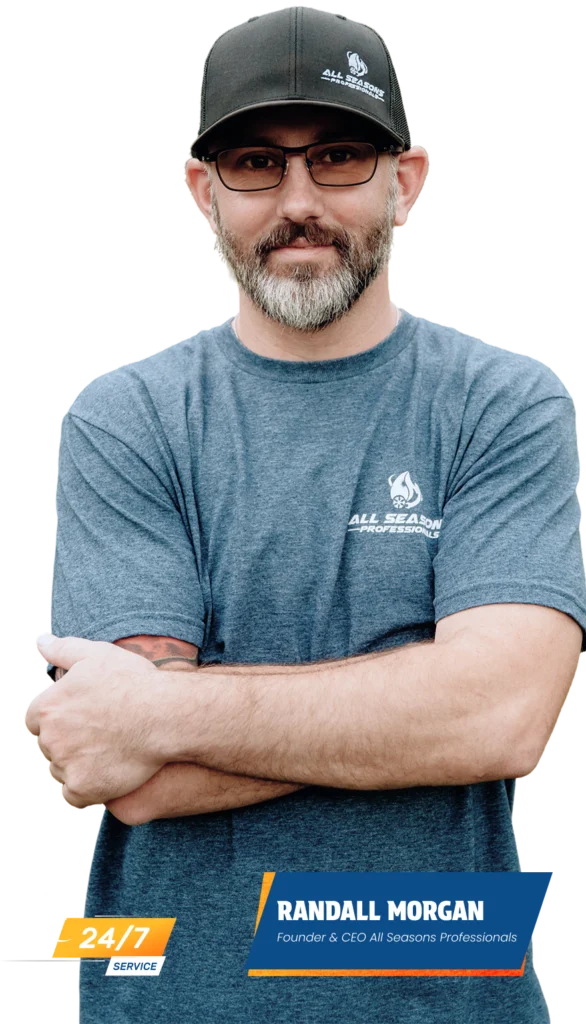Finding the right heating and cooling solution is essential when deciding how to keep your home or business comfortable. Many property owners wonder whether a heat pump or a conventional HVAC system with a furnace and air conditioner is the better option. Both have advantages, but factors such as climate, property size, and installation costs play a big role. This guide highlights the key differences between heat pumps vs air conditioners so you can make the best choice for your home.
What Is a Conventional HVAC System?
A traditional HVAC system usually combines two separate components:
- Furnace – heats your home using gas or electric resistance.
- Central air conditioner – provides cooling by removing heat from inside your home and releasing it outside.
This setup has been common in American households for decades. Furnaces and air conditioners are especially reliable in colder climates, while central AC units excel at providing cool air in summer.
Why homeowners choose a conventional HVAC system:
- Reliable heating and cooling across different climates.
- Lower upfront installation costs compared to a heat pump system.
- Easy availability of replacement parts, repair services, and technicians.
What Is a Heat Pump?
A heat pump works like a conventional air conditioner in summer but reverses its operation in winter to heat your home. Instead of generating heat, it transfers heat rather than generate it, making it highly efficient.
Types of heat pumps include:
- Air-source heat pump – extracts heat from the air outside and moves it indoors.
- Geothermal heat pump – transfers heat from one area to another using stable underground temperatures.
Because a heat pump moves heat rather than creating it, it offers efficient heating and cooling in moderate climates. In places like Texas, a heat pump is likely the best choice due to its balance of comfort and energy efficiency.

The Differences Between Heat Pumps vs Air Conditioners
Performance & Efficiency
- Conventional HVAC: Furnaces can achieve high AFUE ratings (90–98%), offering efficient heating, though fuel costs may be higher. Central air conditioning systems vary based on SEER ratings.
- Heat pump: Heat pumps use electricity to cool your home and provide heating by extracting heat. The efficiency of a heat pump makes it cost-effective in mild winters, though backup heating may be required in extreme cold.
Installation & Costs
- Conventional HVAC systems have lower upfront installation costs.
- Installing a heat pump may cost more initially, but lower long-term bills often offset the investment.
Maintenance & Repair
- HVAC systems require servicing for both the furnace and air conditioning system.
- Heat pumps combine heating and cooling, simplifying repair and cleaning needs, though they still need consistent upkeep.
Climate Considerations
- In Texas, where winters are mild, using a heat pump provides year-round comfort.
- In colder regions, a furnace to provide heat may still be necessary.
Pros and Cons of a Conventional HVAC System
Pros:
- Strong heating system performance in freezing weather.
- Lower upfront installation cost.
- Service and repair availability is widespread.
Cons:
- Requires two separate systems (furnace and AC units).
- Higher utility bills.
- Less environmentally friendly compared to a heat pump.

Pros and Cons of Heat Pumps
Pros:
- One system to heat and cool your home.
- More energy efficient than traditional heating.
- Better for the environment since no fuel combustion is needed.
Cons:
- Higher upfront installation costs.
- May require supplemental heating in extreme cold.
- Some models need frequent servicing.
Choosing Between a Heat Pump and HVAC in Texas
For homes and businesses in Canton, TX, and across Van Zandt County, mild winters make heat pumps and air conditioners an excellent option. A heat pump can heat and cool efficiently year-round.
That said, conventional HVAC systems remain useful for larger spaces where strong furnaces and air conditioners are still preferred. Ultimately, the difference between a heat pump vs AC system comes down to property size, indoor air quality needs, and long-term savings.
How to Decide Between a Heat Pump or Air Conditioner
When deciding on a heat pump or air conditioner, consider:
- Budget – upfront vs long-term bills.
- Property Size – larger homes may rely on a furnace for efficient heating.
- Energy Goals – if energy efficient living is a priority, a heat pump may be the right call.
- Climate – heat pumps are more efficient in regions like Texas, while colder climates may need furnaces and air conditioners paired together.
- Maintenance – cleaning, repair, and installation play a big role in system lifespan.
Professional Installation and Maintenance
Whether you choose a heat pump system or a type of HVAC system with a central air conditioner and furnace, proper installation, repair, and cleaning are crucial. At All Seasons Professionals, we handle installing a heat pump, HVAC system repair, and regular maintenance for central air conditioning systems and ductless air-source heat pumps.
Our technicians provide expert installation and repair services so your heating and cooling system runs efficiently for years to come.

Conclusion
The difference between heat pumps vs air conditioners depends on your climate, budget, and comfort needs. A heat pump’s efficiency makes it a great option in Texas, while traditional air conditioners paired with a furnace still work well for homeowners who want maximum indoor air comfort.
If you’re ready to decide between a heat pump or a traditional air conditioner, our team can help with installation, repair, and maintenance services designed to keep your system running longer than heat pumps typically last without professional care.




